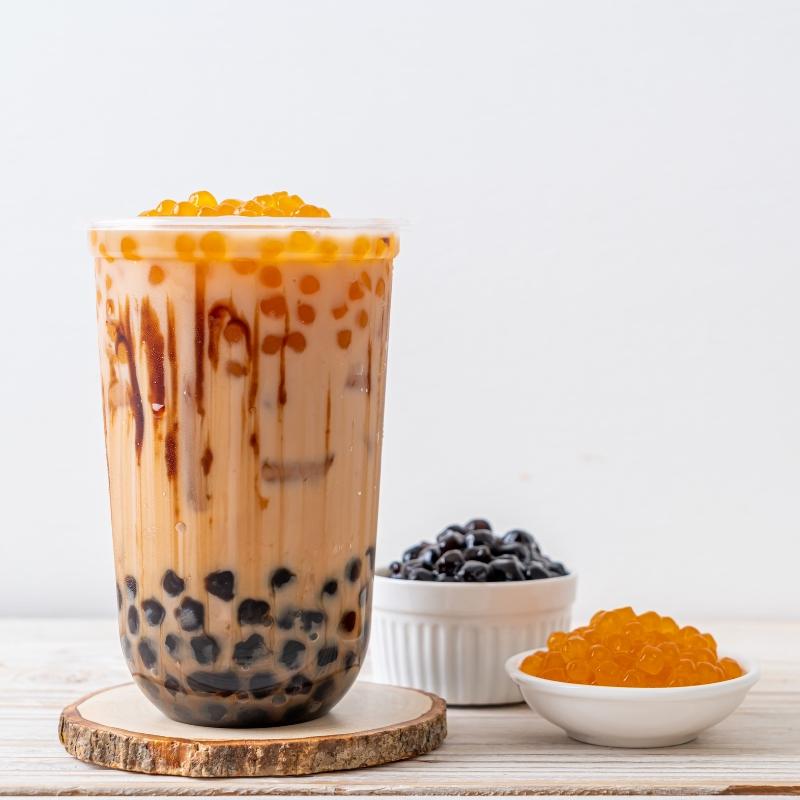The Bittersweet Truth: Unraveling the Health Risks of Bubble Tea

Bubble tea, also known as boba tea, has taken the world by storm, captivating taste buds with its diverse flavors and quirky chewy tapioca pearls. Originating in Taiwan, this trendy beverage has become a global sensation, with numerous bubble tea shops popping up in cities around the world. While bubble tea might seem like a fun and refreshing treat, it’s essential to recognize that its popularity doesn’t come without health concerns.
High Sugar Content:
One of the primary culprits behind the unhealthy reputation of bubble tea lies in its high sugar content. The sweetness of bubble tea largely comes from flavored syrups, fruit juices, and sweetened milk. As a result, a typical bubble tea can contain a staggering amount of added sugars, sometimes exceeding the recommended daily intake. Although the exact amount varies depending on the flavor and type of bubble tea, a 16-ounce (475-mL) serving usually contains around 300 calories and 38 grams of sugar. Sugar-sweetened beverages like bubble tea have been linked to various health issues, including heart disease, obesity, liver problems. Opting for less sweetened versions or sugar alternatives can help reduce the negative impact on your health.
Caloric Overload:
Beyond the sugar, bubble tea can pack a significant caloric punch. With the inclusion of milk and toppings like tapioca pearls, jelly, or fruit chunks, a single serving of bubble tea can quickly escalate to a substantial calorie bomb. Regularly consuming high-calorie beverages without considering their impact on your overall daily caloric intake can lead to weight gain and an increased risk of obesity-related diseases.
Tapioca Pearls and Additives:
Tapioca pearls, the chewy spheres that give bubble tea its iconic appeal, may seem harmless, but they are often loaded with carbohydrates, starch, sugars and sometimes even artificial additives. Some manufacturers may use colouring, thickeners and preservatives to prolong shelf life and its appearance. These ingredients can lead to gastrointestinal problems. This is especially the case when consumed in large amounts. So, while tapioca pearls are gluten-free and can be enjoyed in moderation, excessive consumption may lead to digestive discomfort for some individuals, especially those with sensitivities to starch or food additives.
Lack of Nutritional Value:
Bubble tea is often regarded as an indulgent treat, and rightly so. However, it is crucial to understand that bubble tea offers minimal nutritional value apart from some calcium from milk (if used). Unlike whole fruits or natural beverages like water or herbal teas, bubble tea does not provide essential vitamins, minerals, or antioxidants that contribute to overall health and well-being.
Conclusion:
While bubble tea undeniably presents a fun and flavorful experience, it’s essential to approach it with moderation and awareness of its potential health risks. High sugar content, excess calories, and additives in the form of tapioca pearls are the primary factors that contribute to bubble tea’s unhealthy reputation. By enjoying bubble tea as an occasional treat and opting for less sweetened versions, you can still savor the taste while being mindful of your health. As with any indulgence, balance and moderation are key to ensuring that bubble tea remains a delightful treat rather than a health hazard.
Alternatively, you can concoct your own healthy bubble tea with a simple blender. By substituting sugary ingredients with fresh fruits, natural sweeteners, and nutritious milk alternatives, you can create a homemade bubble tea that not only tantalizes your taste buds but also supports your well-being.
References:
- Calories and sugars in boba milk tea: implications for obesity risk in Asian Pacific Islanders – PMC (nih.gov)
- FoodData Central (usda.gov)
- Health and economic benefits of reducing sugar intake in the USA, including effects via non-alcoholic fatty liver disease: a microsimulation model – PMC (nih.gov)
Comments (0)